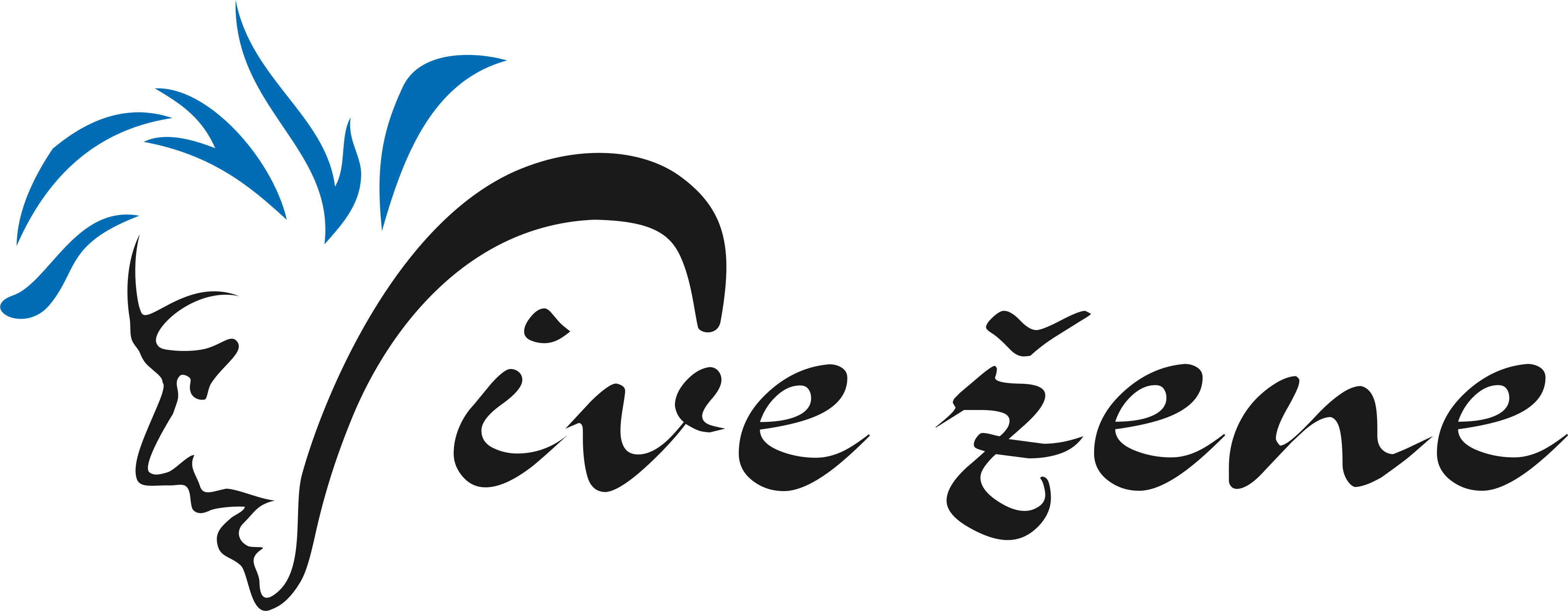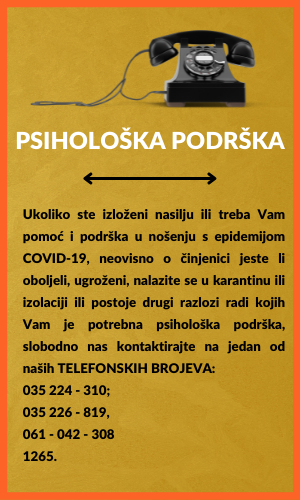Cool for proposal for external consultant – evaluator of the project: “Prevention, protection, rehabilitation of the victims of war and GBV in B&H”
Terms of reference
The object of the evaluation:
| Project title | “Prevention, protection, rehabilitation of the victims of war and GBV in B&H” |
| Project duration | 2020–2022 |
| Donor | IAMANEH Switzerland, MEDICOR Liechtenstein; UNVFVT Geneva, Local government |
| Contact person | Jasna Zečević, Vive Žene President
|
| Contact information | Alekse Šantića bb; 75000 Tuzla; BiH
Telephone number: 035 224 310 Fax number: 035 224 311 Mailing address: vivezene@bih.net.ba; zecevic.jasna@gmail.com |
Background
Vive Zene is a non-governmental organization that focuses its activities on the psychosocial assistance and support of victims of war, torture and violence, and strengthening the capacity of other organizations and institutions with multidisciplinary, democratic and participatory approach in working with traumatized families and individuals.
Vive Žene Centre, work on rehabilitation and prevention of all forms of violence and torture through comprehensive and professional psycho-social support, education and public advocacy work on the building of nonviolent, tolerant and safe society. The psychosocial model used within its work and this project is based on the understanding that healing of trauma is a multidimensional long-term process that involves work at the individual, local, community and macro levels of the society.
Therefore basic implementation strategy used in project integrated three levels of intervention:
- the first level is rehabilitation of the victims and mitigation of transgenerational transition of trauma, implemented through psychosocial individual and group work,
- the second level is prevention through empowerment and community work with children, youth and their parents in local communities, implemented through the program of psycho pedagogical group work and family counselling,
- the third level is the macro level of lobbying for system integration of Vive Žene services implemented through process of negotiation with different level of the governmental structure in BiH ensuring long term sustainability of Vive Žene.
Overall goal of the project is to improve the mental health of war victims and victims of gender-based violence (direct and indirect victims, such as children and adolescent) in BiH, through focus on psychosocial rehabilitation, protection and prevention in order to contribute to violence and conflict prevention.
Purposes of the evaluation
This evaluation will inform the results of the project based on five criteria (relevance, effectiveness, efficiency, sustainability and impact). More specifically, the key objectives of the evaluation are:
- To assess the relevance, effectiveness, efficiency, sustainability and impact of the project: “Prevention, protection, rehabilitation of the victims of war and GBV in B&H” ,
- To assess the extent to which the project has contributed to project outcomes:
Outcome 1 (Rehabilitation Program): Psychological and emotional health situation of beneficiaries (250 victims of war and victims of GBV annually) and access to rights improved. Vive Žene are putting serious efforts in minimizing long-term consequences of complex trauma of war and GBV, but because of the difficult situation in the country for many years after the war, these efforts have not been enough yet. The presence of trauma in the lives of a broad part of the population has been damaging for themselves in the first place, but also for their spouses, their children and their grandchildren. Within rehabilitation program new systemic approach (developed within Pilot project 2019) will be used in treating victims of violence. Victim`s family will be analysied comprehensively, in accordance with the family needs certain interventions will be planed in implemented.
Outcome 2 (Rehabilitation Program): 20 Empowered women are able to make their voices heard in systems of referral mechanisms and other events/activities Women who are victims of violence will be empowered to become public speakers, educators and promoters to combat GBV. New activities within Rehabilitation program in this Project phase, will be workshops on empowerment of the women who want to “speak out” to help them to learn how to express them self in a public, and ensure that they will be heard by pubic institution representatives. Through the workshops, Vive Žene will provide opportunity for the women to connect one-on one with women who share their unique set of life experiences, stories and knowledge. Women with experiences of discrimination and violence will be introduced (up to 20 voluntary engaged women) to the Referrals Mechanism members aiming to increase dialogue, improve accountability and enhance adequate respond, based on individual needs of each victim, from the institutions in charge to combat GBV.
Outcome 3 (Prevention Program): Strengthened knowledge about gender equality and improved skills for non-violent conflict resolution of 100 boys and girls. Program will be focused on empowerment of the individual capacity of boys and girls, to accept the gender equality and become leader’s role organising activities focused on gender transformation.New activities within Prevention program will be Peer education as a key source for promoting non –violent behaviour is opportunity to promote changes among peers in non-formal training in targeted school settings. All stages of the program will be based on participatory and consultative approach, where these groups will create a space for development of 20 new youth leaders who will strengthen their capacities and become promoters of peace, tolerance and gender equality in Brčko and Tuzla region. All activities will be presented to parents and after their approval teacher will be involved during whole project implementation
Outcome 4 (System integration and financial sustainability program):
Long term sustainability of the organization Vive Zene ensured through integration of Vive Zene services into governmental financing structures and finding new international donor that will include in financing of “core “organizational activities. This will be achieved through continues advocating activities focus on different level of governments.
Evaluation criteria and questions
| Relevance | – Did the intervention respond to the needs of the various target groups primary group the victims of domestic or gender-based violence; children and young people, ages form 10 to 18 facing the problem of domestic violence, peer violence, and in general violence; Indirect beneficiaries: relevant institutions that should provide safety, protection and treatment of the victims, as well as those responsible for prosecution and provision of treatment for perpetrators)?
– Was the logical framework coherent enough to achieve the results? – Did the project contributed to prevention, protection, rehabilitation of the targeted victims and gender based violence?
|
| Efficiency | – Were resources utilized and managed in efficient manner?
|
| Effectiveness | – Were the outputs delivered as planned and in a coherent manner?
– What was the level of quality and compliance of activities?
|
| Sustainability | – What is the likelihood that the operation being financed at the local and sub-national level for continuity of the services (access Safe house) after the end of the project?
– What could the project have done different to improve sustainability?
|
| Impact | – What were the main impacts (positive/negative, expected/unexpected) as perceived by the different actors and beneficiaries of the project?
– Influence of Covid 19 pandemic |
| Other areas of project specific concern
|
|
| Equity | – Was the project addressing the needs of the target groups?
– Did the project contribute to equitable participation and benefits to various groups? |
Methodology
A mixed-method approach is required for this evaluation including the systematic use of qualitative (e.g, structured interviews and focus groups) and quantitative (e.g. recent survey results, existing routine data) methods. The overall methodology will be participatory and involve various beneficiaries/stakeholders to capture their opinion.
The contracted consultant will be requested to develop a more holistic evaluation plan which must contain a work plan, a detailed description of a specific methodological approach, a design for the evaluation with a list of questionnaires, and information collection and analysis methods and tools including sampling plans, as necessary.
The below is general proposition to develop technical proposal for the applicant. There are mainly three phases in this evaluation exercise as below.
- Desk review and refinement of methodology
- Data collection, field work (site visit/interviews)
- Analysis and Reporting
Activities, Task, deliverables and timeframe
The assignment is for 15 days over the period of 15 December 2022 to 31 December 2022. The consultant will provide a detailed timetable in its technical proposal, specifying the distribution of tasks and duration to complete each task. The proposed sequencing in the table below is an indicative proposal which could be improved in the technical offer. The right column indicates an estimated duration for the activity.
| Activity | Duration
(working days) |
| 1. Participate in a briefing session on the assignment with core Vive Žene staff | 1 |
| 2. Review and analyse the relevant documents, reports, materials | 2 |
| 3. Finalization of the questions and sub-questions of the evaluation | 1 |
| 4. Identification of the evaluation methodology, information/data collection method for each evaluation question, sampling for interviews and field visits, and development of data collection, and data analysis plan | 1 |
| 5. Development of detailed planning for the evaluation with support of Vive Žene for logistical arrangement (field visit) | 1 |
| 6. Data collection (interviews; focus groups, field visits) | 5 |
| 7. Processing and analysis of the collected data, and drafting of the interim report | 2 |
| 8. Presentation of the draft report to the Vive Žene for feedback Completing the draft report by incorporating feedback from Vive Žene core staff | 1 |
| 9. Submission of the Final report | 1 |
End Product/ deliverables
- Inception report/plan (activity 1- 6)
- Interim report (activity 7-8)
- Final Report in English (activity 9)
The final evaluation report should not exceed more than 30 pages and will include at least the following:
- Executive Summary
- Brief description of the program, its context, areas of intervention, timing, implementation modalities
- Objectives, methodology, timing of evaluation and challenges / limitations of the analysis
- Results in terms of relevance, efficiency, effectiveness, impact, sustainability
- Analysis, including reflection on gender, human rights
- Lessons learned , challenges, conclusions, recommendations, action plan
The percentage of total remuneration for key deliverable
| Activities | Timeline | Payment |
| Submission of Final evaluation report | Upon completion | 100 % |
- Management
The Vive Žene President, Programme manager and core staff will provide oversight, feed – back on reports and technical support.
- Qualifications and experience required:
- Credible national expert with at least 5 years of professional experience in planning, implementation, management, monitoring and evaluation of psychosocial projects/or community development project.
- Proven experience with similar programme evaluations
- Ability to work independently.
- Good communication and report writing skills in English.
- Commitments to deliver the final products in line with the set TOR within the agreed timeline.
- Condition of Work
Vive Žene will facilitate the arrangement of meetings and workshops with interviewed individuals/groups as required and will provide logistic support as necessary.
The consultant is expected to undertake field trips to the selected project locations in the target project location .
Interested candidates are kindly requested to submit the following information:
- Letter of interest
- Technical Proposal
- Proposed budget and fees
- CV
Please send the submission to vivezene@bih.net.ba or ugvivezene@gmail.com or to Vive Žene address Alekse Šantića 6; 75000 Tuzla, BiH.
Closing date for receipt of proposals: 7 December 2022.
Only short-listed candidates will be contacted.

